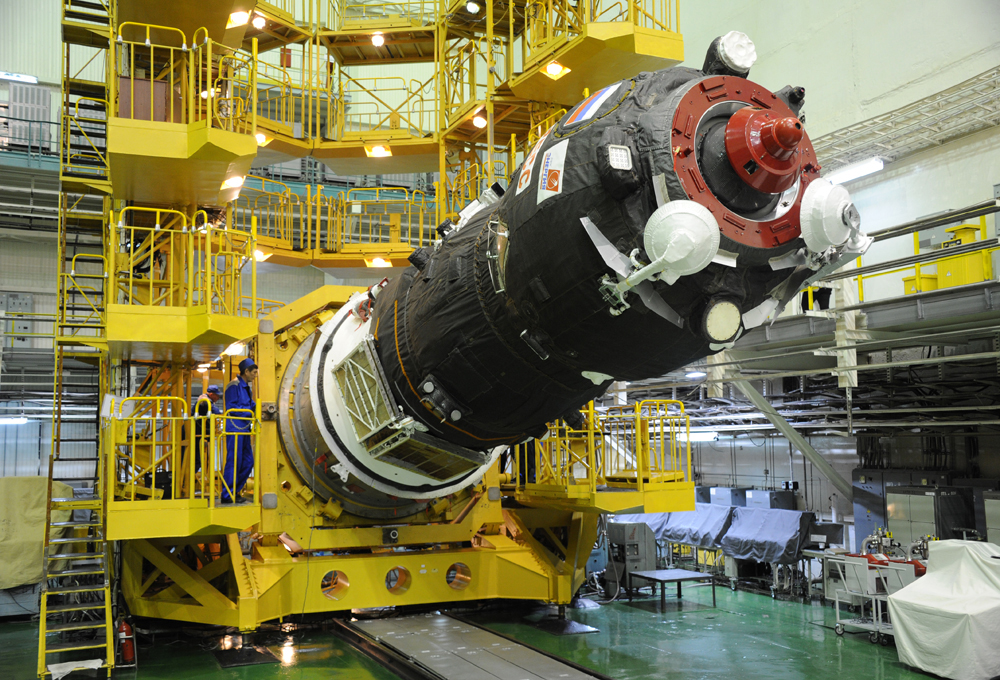This Strange Sensor Russia Sent to the ISS Is Baffling US Military Experts

Credit to Author: David Axe| Date: Wed, 18 Oct 2017 13:00:00 +0000
A Russian spacecraft on a routine mission to the International Space Station (ISS) apparently carried a surprise payload: a secretive sensor that experts said could be related to a controversial military initiative.
The spacecraft, which the Russian space agency designated Progress MS-07, blasted off from the Baikonur Cosmodrome in southern Kazakhstan on October 12. The main mission of the unmanned Progress rockets is to haul supplies to the ISS.
After unloading the supplies, the station crew tosses its garbage into the now-empty Progress capsule. The craft separates from the station and, after a couple of days, tumbles back to Earth and burns up.
Russia often takes advantage of those extra couple of days to position small satellites or perform brief experiments unrelated to the space station. Progress MS-07, for example, carried a small data-relay satellite and a miniature robot that’s part of a Russian company’s social media campaign.
But Progress MS-07 also carried a mysterious sensor, one that might have important military implications. Anatoly Zak, an author and space expert, was among the first to notice the sensor in official photos provided by RKK Energia, the Russian company that manufactured the expendable Progress MS-07 spacecraft.
Russian officials told Zak that the sensor was part of a “one-time scientific experiment,” but otherwise declined to comment on the device’s purpose. The Russian space agency Roscosmos did not immediately respond to an email from Motherboard requesting comment.
Read more: How Dreams of Spacefaring Zombies Led to the Launch of Sputnik
The space agency is probably telling the truth about the sensor—just not the whole truth. “The device is mounted on a location used by other scientific sensors in the past,” James Oberg, the author of several books about space technology, told me.
But what kind of science did the sensor support? After all, weapons-development is a kind of science. “The fact that they are not discussing it is unusual, and maybe it’s a test of some military-related sensor of some kind,” said Jonathan McDowell, an independent space expert.
One expert on Russian space technology, who asked not be identified, told me that the sensor could be related to so-called “proximity operations”—the delicate art of maneuvering one satellite close to another satellite.
Proximity operations are all the rage right now. The United States, Russia, and China all have recently launched specialized “inspection” spacecraft whose main function is to get close to other spacecraft in order to repair, tamper with, or destroy them.
Such spacecraft are, in a sense, weapons, albeit weapons that can masquerade as civilian vehicles with strictly peaceful missions. One moment an inspection craft is repairing a damaged satellite belonging to the same country. The next, it’s sidling up to another country’s spy satellite, sabotaging it as part of a spaceborne sneak attack.
“Such missions will pose a particular challenge in the future, complicating the US ability to characterize the space environment, decipher intent of space activity, and provide advance threat-warning,” Dan Coats, the director of US national intelligence, told the Senate in May.
The US Air Force’s X-37B spaceplane is perhaps the notorious craft capable of maneuvering close to satellites. The Air Force insists the X-37B’s missions are strictly scientific, the same claim Russia made about the secretive sensor aboard Progress MS-07.
But the differences end there. That the Air Force operates the X-37B is a tacit admission that, on some level, the X-37B supports Pentagon initiatives. “I think X-37B is a bit different in that it’s a military program,” Brian Weeden, a space analyst at the Secure World Foundation, told me.
For that reason, it could be worth it to the US and other countries to keep an eye on future Progress resupply missions. It’s possible Russia sneaked a military sensor onto an otherwise peaceful space-station resupply mission. It’s also possible the experts are wrong and the sensor had no military applications.
McDowell, for one, cautioned against alarm. “I think the appropriate reaction is ‘mild curiosity,'” he said, “rather than ‘worry.'”
Get six of our favorite Motherboard stories every day by signing up for our newsletter.